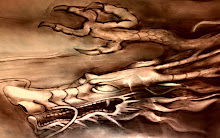For many visitors, China will never be more than its pollution, commerce-driven megacities, famous sites and filthy public latrines. Admittedly, China can be very inaccessible. Without language, without time, and without the willingness to debase a huge and unexpected array of beliefs, it can’t be much more. After all, how does one get past the years of constructed orientalism, mountains of cheap goods, and the frightening largesse of the statistics – especially when any single one of these factors is overwhelming?
There are few things that get under my skin more than the tired old stereotypes of the uncivilized Chinese who spit on every corner and snack on their pet dogs (or babies, as some claim). Yet, due to a personal conflict between my eastern and western halves, my father and mother, Asian life and Australian life, it is sometimes very hard for me to speak out against the seemingly endless barrage of ignorant prejudices about China and its people. Indeed, not to speak is the Asian way. And to my own discredit, I confess that I often reduce myself to entertaining certain people with cheap anecdotes about cultural mishaps and untoward differences.
Yet, the transformation my awareness underwent in China was something wondrous and magical. I was drawn in by the intimate flow of life in the streets – the fleeting moments hidden around every corner, the tiny marketplaces in back alleys, the movement in the hutongs, the chaotic jumble of bicycles and carts, the worlds within worlds, and the innate calmness of a people who give each other space, despite the crowds. But more importantly, I was seduced by the way China deconstructed and reconstructed me conceptually.
China is worlds apart from the west – the mindset is different, the approach to life is different, and European language concepts can not be applied. Words only cover parts of meanings, and new meanings take a long time to understand. But perhaps the most striking aspects of my China experience were the consequences of being so firmly outside the sphere and influence of Christianity – to be momentarily liberated from the intense individualism and egocentrism of nations harvested on the belief that each of us stand alone (to be judged before God).
Living inside an empire of communities which devalued the individual so entirely was challenging to say the least. On one hand, I couldn’t cease to believe in the rights and the power of the individual; yet, on the other hand, China brought me face to face with the negative offshoots of western individualism. As incredulous as it may seem, many of the “ills of the west” (depression, anxiety, and eating disorders) are not diagnosed, treated or authenticated in the same way in China. I now take the viewpoint that these ills only exist in personal belief, stemming from a negative egocentrism which is cradled by social validation.
So, there is nothing greater than taking the risk of being shaped and changed in an unimaginable way, and to have every idea one has ever been fool enough to believe in discredited. And that the strength of China is undeniable – a strength that lies not in its government, but in the millions of people who believe more in the magnitude and power of this nation than in themselves.
This photo book is a visual memoir of the three years we spent in China. Our photos are not the most stereotypical shots you will find of China, and we hope that amongst the pages you find something of interest that gives you a new insight into Chinese life.










































